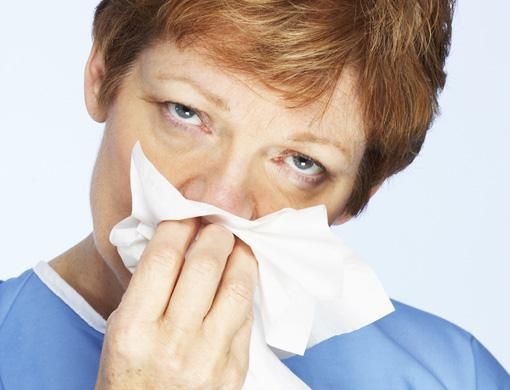We're nearing the end of allergy season — a sneezy, runny-nose, itchy, watery-eye time of year for many of the 40 million allergy sufferers in America. So recent news of an allergy vaccine being studied by Johns Hopkins University researchers generated a lot of patient attention — and questions. Here are a few answers:
How does this compare to other allergy shots I've heard about?
Allergy shots — also called immunotherapy — were first introduced in 1911 and have become a staple of treatment for allergy sufferers whose symptoms fail to adequately respond to antihistamines and nasal sprays. But they require up to a five-year commitment, starting with weekly visits to a doctor's office, decreasing to monthly visits. And patients may not feel full benefits for several months or even years.
The new vaccine, delivered in six shots over consecutive weeks, seems to offer protection from ragweed allergies for at least a year, reports a preliminary study publishedin the New England Journal of Medicine. The goal of both the new and old regimens is to make the patient “desensitised, or less allergic to the substance,'' said James Li, chairman of the allergy division at the Mayo Clinic in Rochester, Minnesota.
The commitment required for existing allergy shots results in many patients not keeping up with their shots, said Peter S. Creticos, the lead study author and medical director of the Johns Hopkins Asthma and Allergy Centre. “It's a tedious, long, drawn-out process.''
But with the new vaccine, “we can circumvent this process much more quickly...and hopefully provide protection that lasts for at least two seasons,'' Creticos said. Participants in the study reported improved symptoms by the next allergy season, just a few months after they completed treatment.
Does the shot really work?
Early results are promising. The new vaccine was studied in a very small group of patients; further research is under way. The randomised, double-blind study involved 25 patients ages 23 to 60, all of whom had ragweed allergies and a history of fall allergies. The patients in the vaccine group had “substantially reduced allergic rhinitis symptoms during the ragweed season,'' and the protection continued through two ragweed seasons, according to the study. The vaccine also appeared to be safe.
So it targets ragweed — what about other allergies?
Researchers chose ragweed because it's the dominant allergen in the Northeast, Midwest and South, Creticos said. But they hope to develop other vaccines targetted at such allergens as grass, cats and dust mites.












